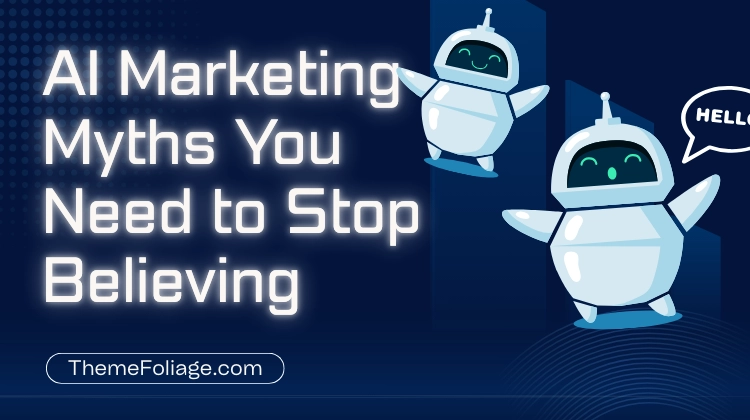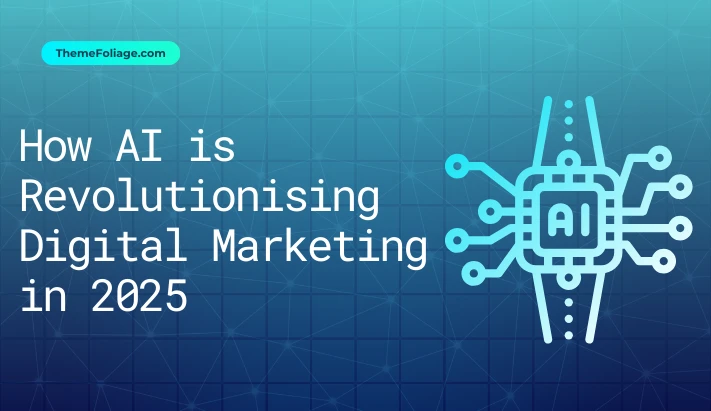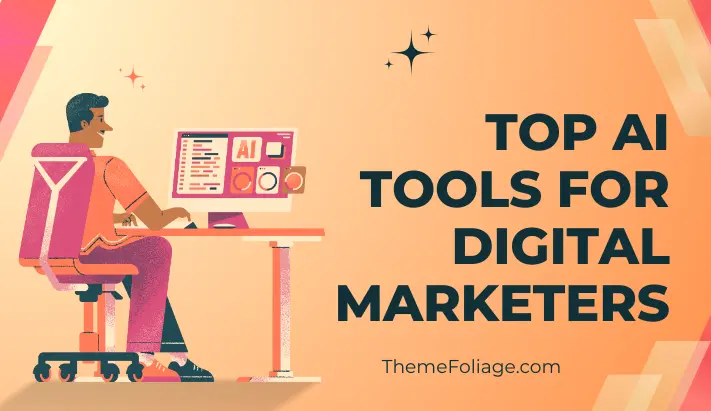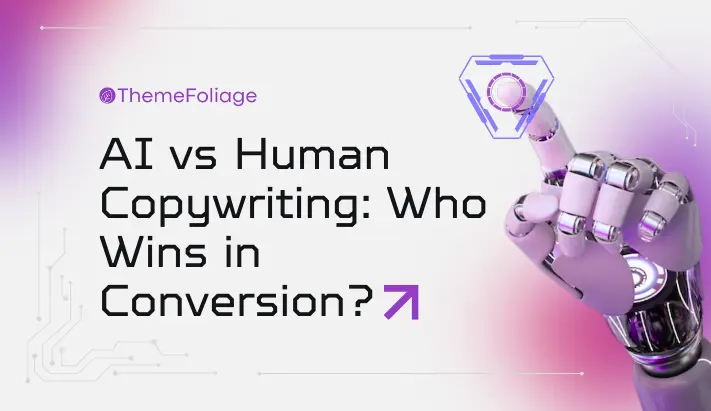Artificial intelligence has become a cornerstone of modern marketing, yet misconceptions persist. These AI marketing myths often prevent businesses from adopting tools that could streamline workflows, improve customer engagement and boost revenue.
In this article, we will debunk the most common myths about AI in marketing, supported by expert insights and real-world examples.
Popular AI Marketing Myths
Myth 1: AI Will Replace Human Marketers
One of the most persistent AI marketing myths is that artificial intelligence will make human marketers obsolete.
While AI can automate repetitive tasks such as data analysis, keyword research and A/B testing, it cannot replicate human creativity, empathy or strategic thinking.
As a recent article in WebProNews explained, “AI tools are designed to augment human capabilities, not supplant them.” Experts emphasise that AI handles the drudgery, freeing marketers to focus on strategy, storytelling and brand building.
Myth 2: AI Cannot Be Creative
Another misconception is that AI lacks creativity. In reality, generative AI models can produce campaign concepts, ad copy and even visuals. However, human oversight is essential to refine these outputs and ensure originality.
A Harvard Business Review article noted that “iterative human-AI collaboration yields breakthrough campaigns.” This demonstrates that AI is not a replacement for creativity, but a catalyst that accelerates ideation.
Myth 3: AI Marketing Is Too Expensive
Many small and mid-sized businesses assume AI tools are prohibitively costly. While enterprise-level platforms can be expensive, there are affordable options. Tools such as Jasper.ai, Surfer SEO and Canva AI offer plans starting from as little as $12 per month.
The cost barrier myth often prevents businesses from exploring AI solutions that could deliver significant returns. By starting with entry-level plans, marketers can test AI’s impact before scaling investment.
Myth 4: AI Produces Perfect Results Without Supervision
Some marketers believe AI outputs are flawless. In truth, AI-generated content can contain errors, bias or irrelevant information. Human review is essential to maintain brand voice and accuracy.
Forbes Communications Council members have warned that “a human-in-the-loop approach, where people review, refine and approve AI-generated content, is key to avoiding ethical pitfalls.” This ensures that AI remains a collaborator, not a stand-alone solution.
Myth 5: AI Marketing Is Only for Large Enterprises
Another common myth is that only large corporations can benefit from AI. In fact, AI tools are increasingly accessible to small businesses and solo entrepreneurs. From automated email marketing to predictive analytics, AI solutions are scalable and adaptable.
For example, a small e-commerce store can use AI-powered chatbots to handle customer queries, freeing staff to focus on fulfilment and growth.
Myth 6: AI Cannot Handle Ethical Concerns
Sceptics argue that AI marketing inevitably leads to ethical issues such as bias or misinformation. While risks exist, responsible use of AI mitigates them.
By using vetted datasets, monitoring outputs and maintaining transparency, marketers can uphold ethical standards.
As one expert from Forbes noted, “Know what ‘good’ looks like to help you spot bias or hallucinations before AI outputs go live.” This highlights the importance of human judgement in ethical AI marketing.
Myth 7: More AI Means Less Personalisation
Some believe that AI-driven automation results in generic, impersonal campaigns. In reality, AI enables hyper-personalisation by analysing customer behaviour and tailoring content accordingly.
From personalised product recommendations to dynamic email subject lines, AI enhances rather than diminishes personalisation.
Myth 8: AI Marketing Is Just a Passing Trend
Finally, there is the belief that AI is a temporary fad. The reality is that AI is now embedded in search engines, social platforms and advertising networks. Ignoring AI means falling behind competitors who are already leveraging it for efficiency and growth.
How to Overcome AI Marketing Myths
To move beyond these misconceptions, marketers should:
- Start small with affordable AI tools.
- Keep humans in the loop for oversight.
- Focus on collaboration between AI and human creativity.
- Monitor ethical implications and maintain transparency.
- Continuously test and optimise AI-driven campaigns.
Final Thoughts
AI marketing myths can hold businesses back from realising the full potential of automation and data-driven insights. By debunking these misconceptions, marketers can embrace AI responsibly and strategically. The future of marketing is not AI versus humans, it is AI and humans working together.



